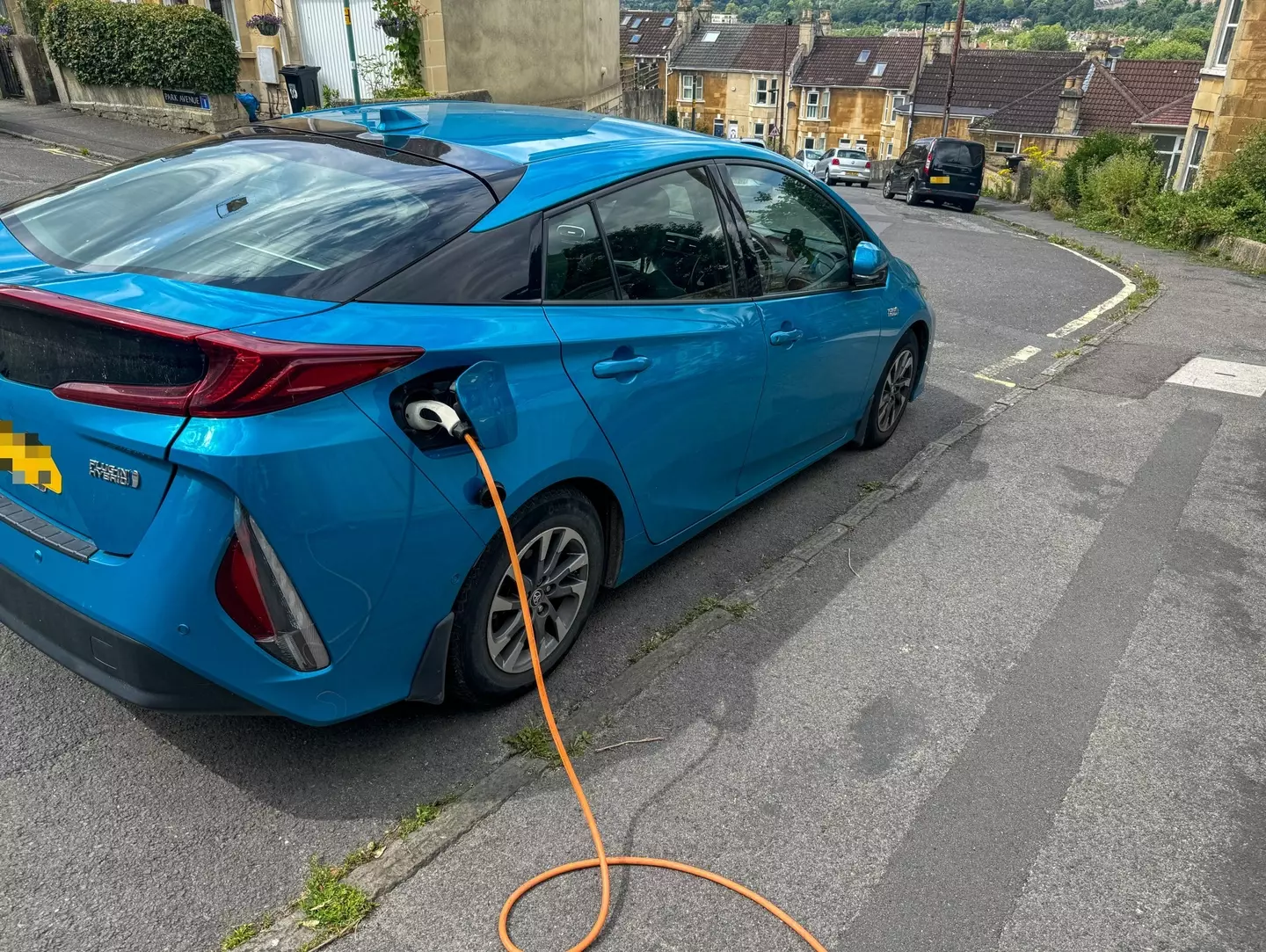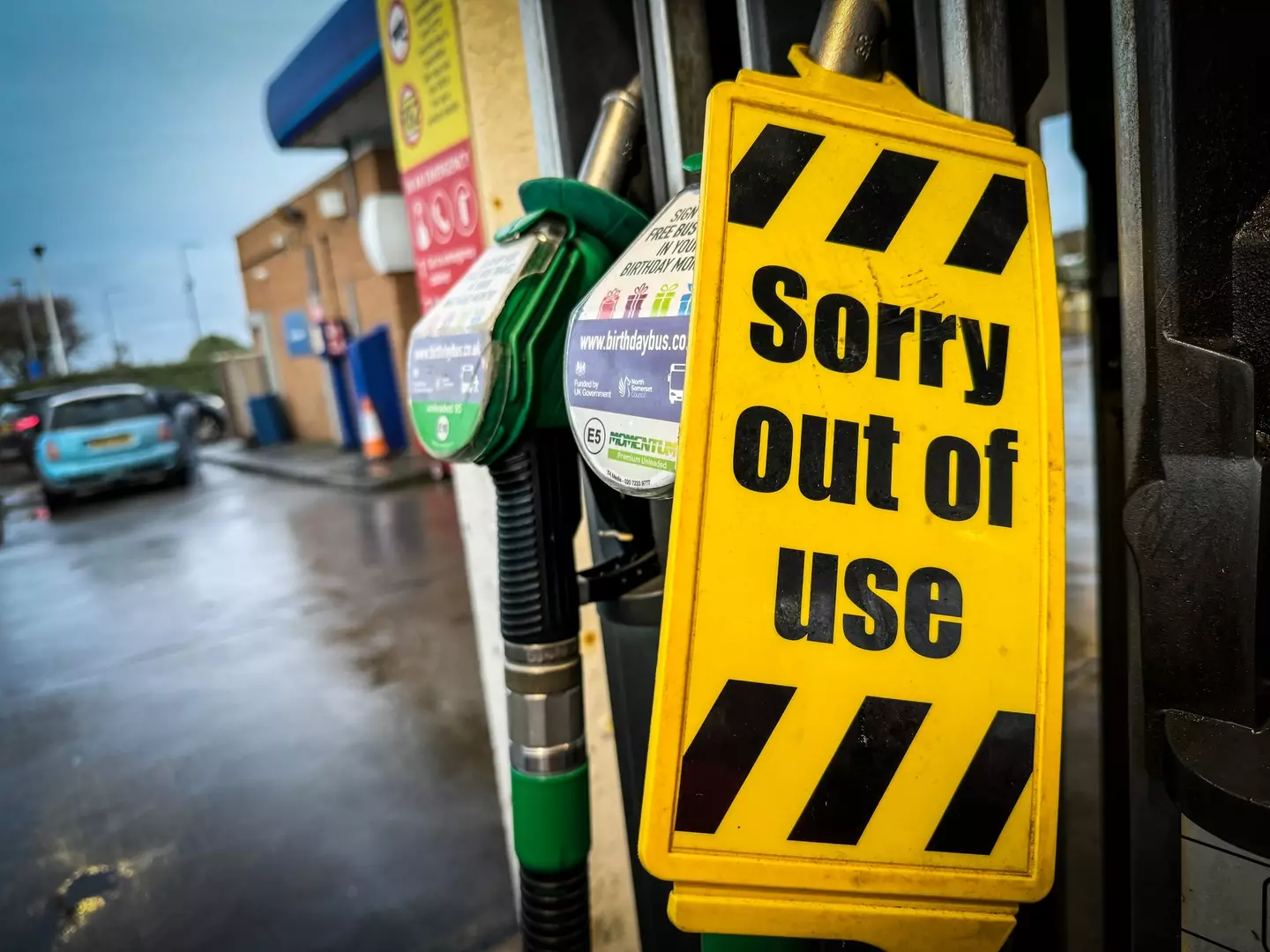He said the change would be ‘effectively car industry 2.0’, so you need to be ready
By now you probably know that the UK is planning on banning the sale of all new petrol and diesel cars from 2030 onwards, and the sale of hybrids from 2035 onwards.
A few years from now the country is going to make a big shift towards electric vehicles and that means those still driving a petrol or diesel car are going to have to make some adjustments.
One of the main changes for Brits behind the wheel is going to be getting used to driving an automatic as electric cars don’t need you to be fiddling about with a gearstick, but there’s plenty more for the modern motorist to mull over.
Stuart Masson of The Car Expert told LADbible what this major change would look like for motorists, saying that the big switcheroo to electric vehicles (EV) would be ‘effectively car industry 2.0’.

By 2030 you won’t be able to buy a brand new petrol or diesel car in the UK, but plenty of Brits will be buying them used for years to come. (Matt Cardy/Getty Images)
How much will change when the 2030 petrol and diesel car ban first comes in?
The expert said that ‘the number of people who are going to be affected in 2030 is actually relatively small’ due to the way people buy cars, explaining that most households buy used cars and that means people will still be buying petrol and diesel motors after the ban comes in, as it only applies to brand new cars.
“Most people that are buying a new car, it’s not a case of thinking ‘is now the right time for me to get rid of my petrol car and buy an electric car?’ It’s more a case of ‘I have to buy a new car. What should I get?’,” Stuart said, explaining that many Brits bought cars on finance and that when that ended many motorists would swap out their old car for a new one.
“So that’s why we have those decisions and that influences whether they’re going to buy or choose an electric car today, or run another petrol, diesel or hybrid car for the next few years and maybe change it next time.”
“People still tend to assume it’s a case of someone making a conscious decision that now is the right time to change the car because of external circumstances.
“A lot of it is driven by their own time frame. It’s a question of people who are going to have to change and deciding, ‘do I change it this year, or do I run once more?’”
Since the government ban on selling new petrol and diesel cars is still a few years off, many motorists looking to buy a new car will still reckon they can go for one more of those before having to switch to electric, and then the same car can be sold in a used condition to other motorists for years after the ban on brand new ones kicks in.
Put simply, plenty of Brits will still buy petrol and diesel cars after 2030.

The infrastructure for electric cars is growing strongly, so even if you do forget to charge your car you should be able to find somewhere to plug it in. (Matt Cardy/Getty Images)
However, the expert explained that over time everyone was going to need to get used to the big changes that would inevitably come, as Stuart said that the infrastructure for electric cars would keep growing and the presence of petrol stations would eventually diminish so by the time you could basically only buy an electric car the infrastructure would be there.
Fortunately for those wedded to their petrol cars he reckoned that they’d still be fine to fill up their motor years from now, but warned that there would probably need to be a bit more planning involved for longer journeys.
“It’s going to be a gradual thing”
He said: “There’s not going to be a position, really, in the next decade or so where people are going to say, ‘oh, I can’t actually go and fill up my car with fuel’.
“There are still going to be enough petrol stations available. But we will, if you’re looking two decades ahead, start to get to a situation where people will have to start planning.
“If I want to drive a petrol car from Land’s End, I’m going to have to start planning where I can stop for petrol because there won’t be that many petrol stations, but there’ll be EV charging everywhere.
“It’s going to be almost a reverse of the sort of situation people have had with electric cars in recent years. But that’s going to take time, and it’s going to be a gradual thing. It’s not going to be a sudden switch where people have to learn how this whole new thing works.
“There’s going to be plenty of time for people to change if they want to, when they want to, and for people who are adamantly go ‘they’ll never take my petrol car away from me’. Chances are they’re going to be able to keep driving petrol cars until they die anyway.”

It’s not going to happen right away and will be a gradual change, but drivers of petrol cars will eventually need to put more thought towards where they can fill up. (Matt Cardy/Getty Images)
So there you have it folks, a couple of decades down the line you should still be able to run your petrol powered passion project, you might just want to be careful to plan your route on a long drive to ensure you’ve got somewhere to fill up.
As for the worries that many motorists have about switching to EVs and running out of battery, Stuart said that the ‘industry doesn’t help itself’ but for the vast majority of motorists they’d do the job just fine.
He explained that about ’98 percent of car journeys in the UK are less than 50 miles’, and that ’99 percent are less than 100 miles’, so it’d be very rare for a driver to have a journey ahead of them where they’d need to worry about stopping to recharge on the way.
The car expert said that the ‘range anxiety’ over electric vehicles was ‘quite overblown’ as ‘people who have electric cars tend not to be that fussed about it’.
“The average journey is about nine miles. The average weekly mileage is about 120 miles. The average electric car range is now about 250 miles, they cover most people’s needs,” Stuart explained, so if and when you do make the switch you’re probably going to be fine.
Featured Image Credit: Getty Stock Photos